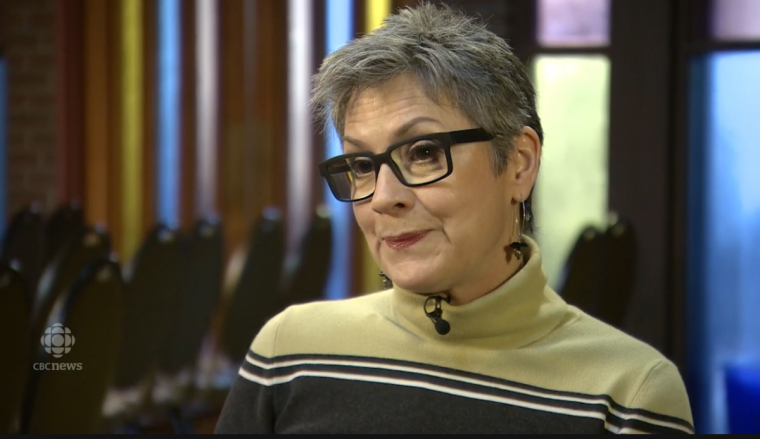'Atheist pastor' may be rejected by liberal denomination

TORONTO (Christian Examiner)—The United Church of Canada, the nation's largest Protestant denomination, may be close to removing a Toronto minister from her pulpit 15 years after she first told her congregation that she didn't believe in an all-powerful God who gets involved in the everyday lives of people.
After obscuring her beliefs for the next 12 years, Gretta Vosper officially "came out" as an atheist in 2013. Now, three years later, The Guardian says, "In the coming weeks, an unprecedented review will be carried out to determine whether Vosper can stay on as a minister."
The move comes from a denomination that has historically promoted theological and cultural liberalism. The denomination has allowed homosexuals to lead ministries for decades and ordained women for 80 years.
Vosper, who has pastored West Hill United Church in Toronto since 1997, credits the denomination's theological looseness as playing a part in her transition into atheism. And she pulls no punches about what she sees as a betrayal from her denomination as she heads toward losing her pulpit.
" ... The ills that the church has and continues to perpetrate can, perhaps, only be overcome by the final demise of traditional Christianity altogether — something I doubt, but fervently hope, will happen."
"I'm a product of the United church," Vosper said, according to The Guardian. "It taught me to critique the Bible as a human construction ... This means everything that it says is up for grabs, including God."
Vosper's Twitter biography says she is "irritating the church into the 21st Century."
Vosper sees no conflict between what she understands as the traditional teachings and message of her denomination and her failure to believe in God. Her 2014 book Amen: What Prayer Can Mean in a World Beyond Belief, she writes about the significance and power of prayer even while denying the existence of a deity to hear those prayers.
"Prayer, for me, is being attuned to the world, to what is happening within me in response to that world, to my partner, my family, my neighbors," Vosper told FaithStreet.com.
According to various reports, Vosper's local church has generally backed her over the past 15 years since she first opened up to them about her atheistic beliefs. In 2008 though, she lost 100 of her 150 church members when she decided to do away with The Lord's Prayer.
The evaluation process of Vosper by the denomination has been slow, partially because it has been so unique in the United Church of Canada.
"We'd never done it before," said David Allen, the executive secretary of the denomination's Toronto Conference.
In May of 2015, Nora Sanders, general secretary of the church's General Council, laid out a review process that could lead to Vosper's dismissal. Of particular concern in the review is whether she is being faithful to her ordination vows, specifically her affirmation of belief in "God: Father, Son and Holy Spirit."
Kevin Flatt, a history professor who has written a book about the United Church, said as far as he is aware the denomination has never disciplined a minister for having liberal theological views.
Vosper had been appealing the decision by the denomination to officially put her under review. Last month the United Church rejected her appeal and decided to go ahead with the review.
Randy Bowes, chair of the West Hill's board, told the Toronto Star that Vosper's use of the term "atheist" doesn't mean Vosper denies the existence of God. It only means she denies the existence of a "certain kind of God."
Despite holding out the possibility of God's existence, Vosper makes clear where she wants her position as an atheist minister to take her denomination and the wider Christian church.
"All the good that Christianity once offered the world has, for the most part, been assumed into secular society," Vosper said according to FaithStreet.com. "We have no need of the church to uphold those virtuous offerings — teach them, perhaps, but not uphold them. And the ills that the church has and continues to perpetrate can, perhaps, only be overcome by the final demise of traditional Christianity altogether — something I doubt, but fervently hope, will happen."